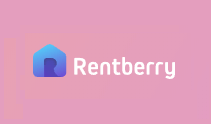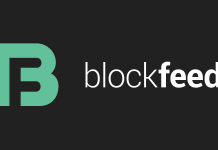Interview with Alex Lubinsky, CEO and founder at Rentberry.
Can you introduce yourself and your role in RentBerry?
My name is Alex Lubinsky, I am a co-founder and CEO of Rentberry. I am responsible for defining Rentberry’s vision, taking care of all business processes as well as ensuring Rentberry’s sustainable growth.
I am a former investment banking executive, and I also founded and sold several companies. Today, however, I dedicate all my time and effort to make Rentberry a success.
What challenge is RentBerry addressing?
Today’s rental experience is not smooth and simple even in the US and other developed countries, let alone the rest of the world. Here at Rentberry, we believe that renting should be a hassle-free process for landlords and tenants around the globe. That’s what we built Rentberry for.
It is a decentralized home rental platform providing online solutions to all rental tasks and allowing seamless cross-border rental experience thanks to proprietary scoring technology, crowdsourced rental deposits, smart contracts, and international currency.
What is the scale of this challenge?
The challenge is huge and, what’s important, global. Take the US. At the moment, landlords have to rely on credit scores and background histories when choosing among applicants. Although this information is obviously valuable, it is not particularly relevant to one’s ability to be a good tenant.
What’s more, credit scores and background history work for US residents only, while tenants from abroad struggle to support their rental applications with relevant documents. According to the report of the UN, there are over 244 million migrants in the world, and the majority of them are renters. They all face problems when applying for rentals abroad, and these pr oblems range from inability to provide a credit score to currency exchange expenses.
oblems range from inability to provide a credit score to currency exchange expenses.
Another big challenge is that today nearly $500 billions are tied up in rental security deposits worldwide. It’s a classic approach to ask tenants to pay a security deposit that equals their monthly rent. This approach is classic but not efficient. Not only does it create an additional financial burden for tenants, but it also ties up money that could have been used for in some way.
How does RentBerry turn this challenge into an opportunity?
Imagine if there was an internationally valid score for both tenants and landlords (after all, tenants too should have some information on a person they’re going to rent from). With a score calculated based on rental-related factors like the history of evictions, reviews of former landlords/tenants, rental payment history and etc., cross-border renting becomes way easier and more transparent.
Since Rentberry allows for crowdsourcing of rental security deposits, it becomes possible to free up money that is now tied up in rental security deposits. Members who are taking part in crowdsourcing get rewards in return, while tenants enjoy a reduced financial burden.
Speaking of other features such as smart contracts, online rental payments, and price negotiation algorithm, they all eliminate the need for middlemen, thus reducing operational costs and saving time for everyone involved.
What will be the primary use of the rent berry token?
BERRY tokens will be used by tenants and landlords to cover all types of services available on the platform. This includes monthly rental payments, security deposits, rental application costs, and more.
Will the interest rates vary according to the type of tenant?
Yes, the offers from community members that include interest rates will be all different. Every community member/investor has a different cost of capital and risk tolerance. Therefore, someone from China might offer the equivalent of $100 at 3% interest and someone from Australia might offer to the same person $100 at 2%. The beauty is that community members essentially will compete for the quality tenants – this way tenants will get the competitive offers from which they will pick and choose the best ones.
Will the system have some kind of auto investing tool?
Yes, there are will be two options: a) you invest manually, one investment at a time and b) you system will match your investment criteria with potential tenants – this way the investments will be conducted automatically.
What will be the process for a landlord to claim a deposit?
The landlord will have admin panel from which he/she can “call in funds” required to repay any damages. The funds that would not be “called in” would be distributed back to the tenant and community members who backed this tenant.
Will the deposit be denominated in RentBerrytokens or in USD?
The deposit and rental price will be denominated in BERRY tokens based on the exchange rate during the time of e-signing rental agreement.
Do you envisage further utility of the RentBerry token?
We have big plans for the future. One of them is to let users pay their utility bills directly from our platform. We believe that in the future members of Rentberry community will be able to use BERRY tokens for all rental-related transactions, including utility bills payments.
Can you unpack this statement further: “Tenants will have to pay 1,000 BERRY tokens per application to give access to their own data to the landlords”?
As it’s been said before, we are now developing a proprietary scoring system for landlords and tenants. All actions landlords and tenants make on the platform are permanently saved, analyzed, and converted into a score that demonstrates whether or not one will make a good landlord/tenant.
To apply for a property, a tenant needs to provide their personal Tenant Score. To do so, he or she will have to pay 1,000 BERRY. It is similar to paying application fee except this fee is paid to give access to personal data stored on the blockchain.
Is RentBerry also being used by property managers?
Yes, Rentberry is equally suitable for landlords, agents, and property managers.
What is the structure of the ICO?
Rentberry’s ICO will consist of two parts – pre-sale and main sale. The pre-sale starts on December 5, 2017, and ends on January 26, 2018. We have an early bird bonus plan for this pre-sale stage and the bonuses will vary from 13% to 33% depending on the date of purchase. The earlier, the better.
The main sale starts on January 27, 2018, and ends on February 28, 2018. At this stage, we also offer some early bird bonuses. Although they are not as huge as for the pre-sale stage, one can still receive up to 7% in bonuses.
The token sale cap is 100,000 ETH. The minimum purchase is 10 ETH = 15000 BERRY during a pre-sale stage and 0.1 ETH = 150 BERRY during the main sale stage.
What are the requirements to participate in the ICO?
Anyone is welcome to participate in Rentberry’s ICO, but we have some requirements though. In order to participate, one will need an ERC-20 compatible wallet like My Ethereum Wallet. What’s more, participants may also be asked to provide documents to verify their identity.
What is the total number of coins that will be issued?
100,000 ETH will be issued.
Which three locations in the US currently offers the best ROI for rental properties?
At the moment, the top three are NYC, Miami, and Chicago.
In which jurisdiction is the company incorporated?
Gibraltar
How is the project balancing the interests of the token holders and the shareholders?
Our goal is to make the token price stable. That is why we have a Reserve fund that will be used to stabilize the price. Moreover, we also will implement “token burn” thus decreasing the supply of tokens in circulation which should positively impact stabilization of the price.
Will the project be audited and will the audit reports be fully published?
Yes, we plan to make sure after the ICO to be with the community very transparent. Our goal that all audits (technical, financial, etc.) be available to the community.
From more information please visit: https://rentberry.com/
We thank Alex Lubinsky for the interview.












